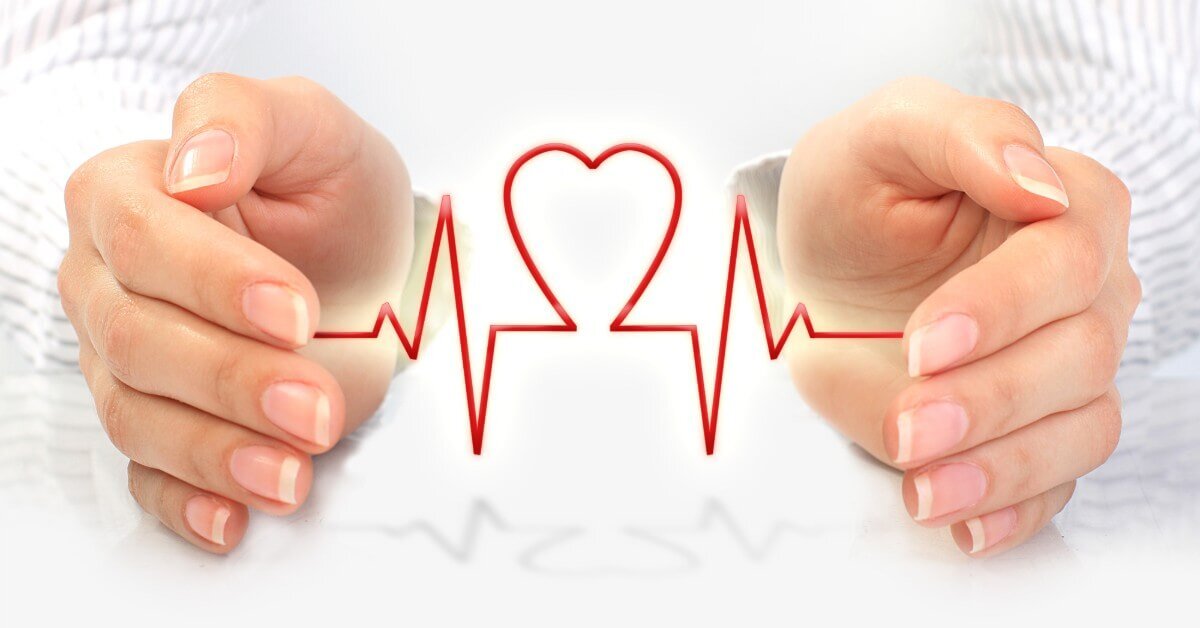COQ10 AND HEART HEALTH - VOLUME 12, ISSUE 10 - FEBRUARY 2021
/What is CoQ10?
CoQ10 is found in almost every cell of the body and is a fat-soluble, vitamin-like substance that helps convert food to energy. It is a powerful antioxidant that protects against damage from toxic free radicals and is produced by the body. It is also found in many foods, with higher levels, in organ meats, sardines, mackerel, chicken, nuts, cauliflower, broccoli and asparagus.
There are two forms of CoQ10: ubiquinone and ubiquinol. Ubiquinol is the active form of CoQ10, and it is made from ubiquinone.
Why should we take CoQ10 as a supplement? As we age, our levels of both ubiquinone and ubiquinol drop. CoQ10 levels have been found to be lower in people with certain conditions, including heart disease, and in those who take cholesterol-lowering drugs called statins. While, as noted above, CoQ10 is found in some foods, the amounts are not enough to significantly increase CoQ10 levels in your body. Therefore it can be helpful to take a CoQ10 supplement.
What are the heart health benefits of CoQ10?
A low level of CoQ10 is known to be an independent risk factor for the progression of coronary heart disease. It is lower in populations that have higher cardiovascular disease rates, and supplementation has been found to be protective.
Cardiovascular disease (CVD): Studies have shown that CoQ10 supplements can significantly increase HDL (good) cholesterol, and may help reduce the risk of CVD. CoQ10 supplementation also lowers levels of inflammatory biomarkers shown to be risk factors for CVD, such as high-sensitivity C-reactive protein. Further, low CoQ10 levels have been associated with greater tissue damage to the heart during a heart attack, and to the brain during a stroke.
Heart failure (or congestive heart failure): In a multi-centre randomized study of 420 patients, CoQ10 has been found to reduce deaths in patients with severe heart failure by half, compared to a control group, over a two year period.
Atrial fibrillation (AFib) is an abnormal, often rapid, heart rhythm that occurs when the atria, the heart's upper chambers, beat out of sync with the ventricles, the heart's lower chambers. It is common in those with heart failure or heart disease but can also occur on its own. There is preliminary evidence that CoQ10 may help reduce episodes of AFib. In one study of 102 patients with AFib, half were given a CoQ10 supplement and half were given a placebo (an inactive substance). After 12 months of supplementation, 12 people in the placebo group had AFib episodes compared to only three people in the CoQ10 group.
High blood pressure: In an analysis of 12 clinical studies, researchers reported that CoQ10 has the potential to lower systolic blood pressure (the top number in a blood pressure reading) by up to 17 mm Hg, and diastolic pressure by 10 mm Hg without significant side effects.
Statin-related muscle symptoms: Some research suggests that CoQ10 may help ease the muscle weakness and pain that can be associated with taking statins (medications to lower cholesterol levels).
Please note that if you take a blood thinner, which is commonly prescribed for various cardiovascular conditions, you should consult a health professional before taking CoQ10 because it may impact the effectiveness of the blood thinner. I would be happy to arrange a consultation with you if you feel it would be helpful, please see our contact information below.
While it's encouraging that CoQ10 can help with a variety of cardiovascular conditions, do keep in mind that the best strategy is the prevention of these conditions. As noted above, our levels of CoQ10 decline with age so, even if you are in excellent health now, an ounce of prevention is worth a pound of cure. To your heart health!
Featured Nature's Sunshine product: CoQ10
An antioxidant for the maintenance of good health.
Helps to maintain and/or support cardiovascular health.
A vitamin-like substance important to every cell in the body.
How It Works: Co-enzyme Q10, also known as ubiquinone, is a vitamin-like substance present in every cell of the body and is vital for the production of cellular energy and cellular antioxidant protection. Within each cell, the mitochondria where energy is produced contain the most co-enzyme Q10. The heart and liver, being the most metabolically active organs, contain the most mitochondria per cell, and thus contain the greatest amount of co-enzyme Q10, too. The body manufactures its own CoQ10. However, levels begin to naturally decline at around age 40. Not surprisingly, by age 50, and those with heart disease, gum disease, obesity, or under chronic stress, have low levels of CoQ10. With supplementation, individuals can maintain their CoQ10 levels.
Supplements
There are a number of supplements to help you maximize your health. You can find information about these products and purchase them in our online store:
COQ10
Arginine Plus (Wildberry)
Blood Pressurex
CardioxLDL
Flax Seed Oil
Ginkgo & Hawthorn
Grapine
Green Tea Extract
High Potency Garlic
Super Omega-3
Zambroza
References:
Heart Month, February 2017 Ministerial Message. https://www.canada.ca/en/health-canada/news/2017/02/heart_month.html#:~:text=February%20is%20Heart%20Month,%20a%20time%20to%20bring,the%20second%20leading%20cause%20of%20death%20in%20Canada. Accessed January 26, 2021.
Ways to keep your heart healthy. Newsletter February 2018;9(10). https://www.ramilas.com/news/2018/2/22/ways-to-keep-your-heart-healthy-february-2018-volume-9-issue-10. Accessed January 26, 2021.
CoQ10: what are the heart health benefits? Cleveland Heartlab, September 9, 2015, https://www.clevelandheartlab.com/blog/horizons-coq10-what-are-the-heart-health-benefits/ Accessed January 25, 2021.
Mayo Clinic Staff. Coenzyme Q10. https://www.mayoclinic.org/drugs-supplements-coenzyme-q10/art-20362602 Accessed January 25, 2021.
Mercola J. CoQ10's potential capabilities for your health. https://articles.mercola.com/vitamins-supplements/coq10.aspx June 8, 2019. Accessed January 29, 2021.
Mercola J. CoQ10 may help AFib, NAFLD and other chronic diseases. https://articles.mercola.com/sites/articles/archive/2020/10/22/does-ubiquinol-help-afib.aspx October 22, 2019. Accessed January 29, 2021.
Disclaimer: The suggestions and recommendations in this newsletter are not intended to be prescriptive or diagnostic. The information is accurate and up to date to our knowledge, but we are not responsible for any errors in our sources of information.




